Abstract
The unbridled use of modern medical skills and technology in preserving life at all costs has stimulated interest in expressing a 'right to die' by the legally competent patient who is anxious to protect his autonomy. Some recent decisions by American courts are seen to threaten this 'right to die' of competent patients and imply that legally incompetent patients including children should not have this right under any circumstances, even when expressed on their behalf by guardians, nearest relatives or parents. It is argued that this is contrary to 'natural justice' as viewed by most people. It should be possible to develop procedures which are protective of the basic 'right to life' of the incompetent yet will recognise circumstances where they could be allowed to die. This paper was presented at the 1983 annual conference of the London Medical Group, 'Human Rights in Medicine'.
Full text
PDF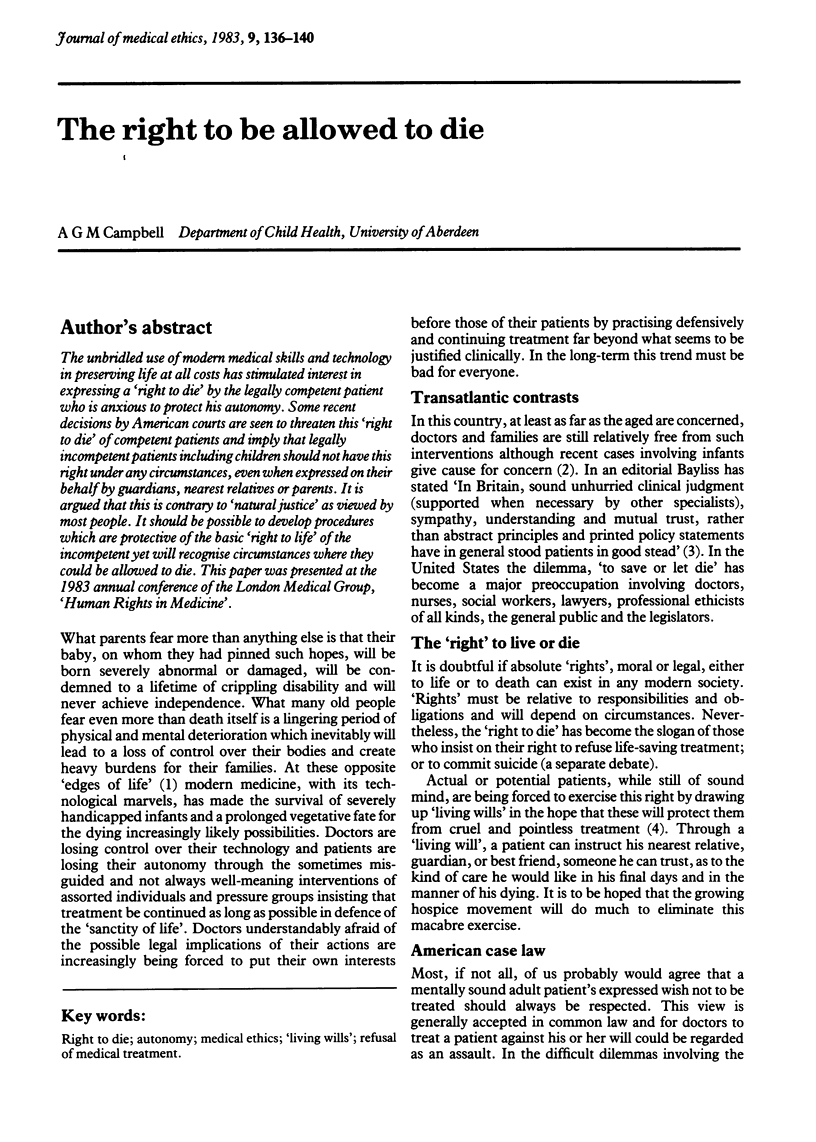
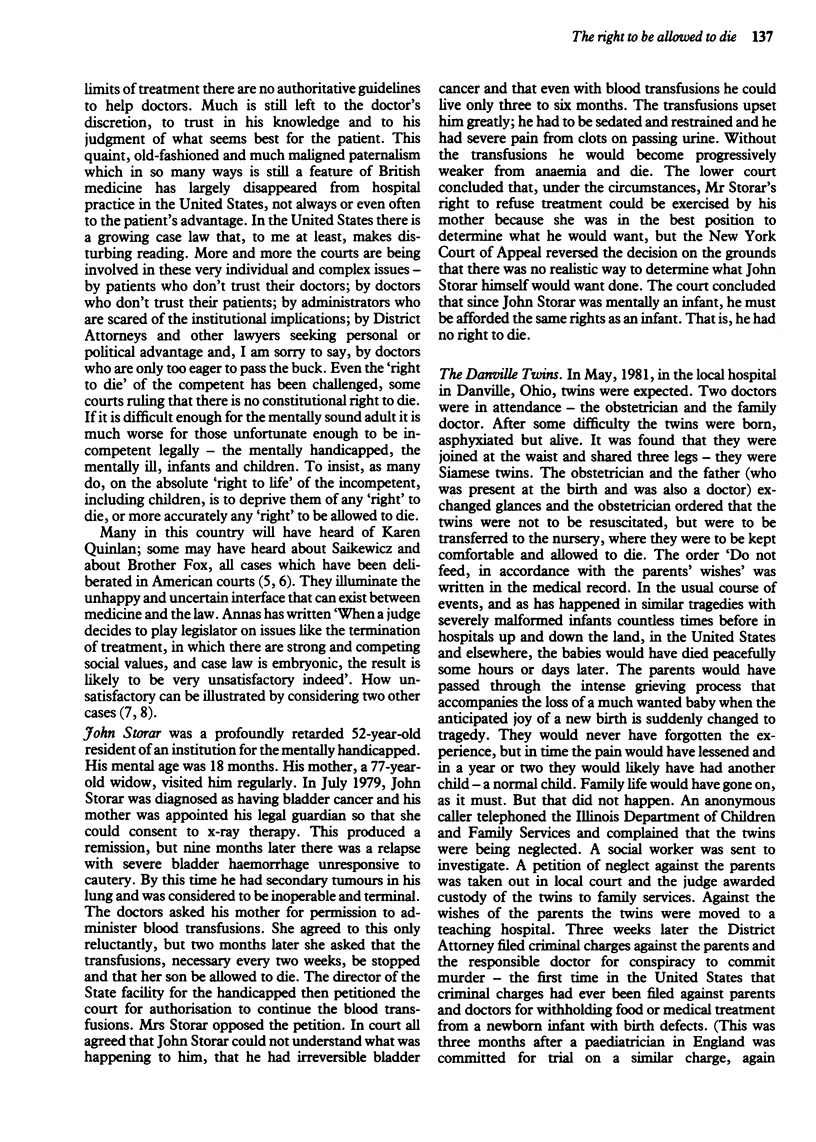
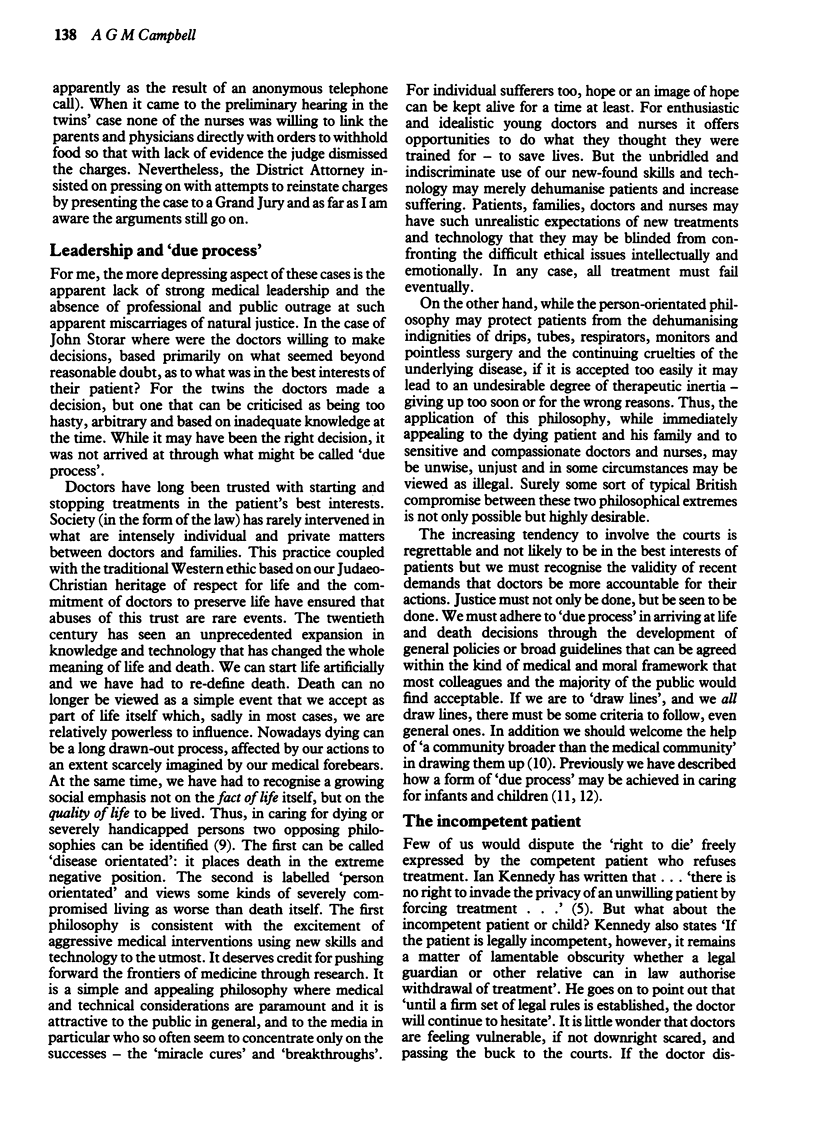
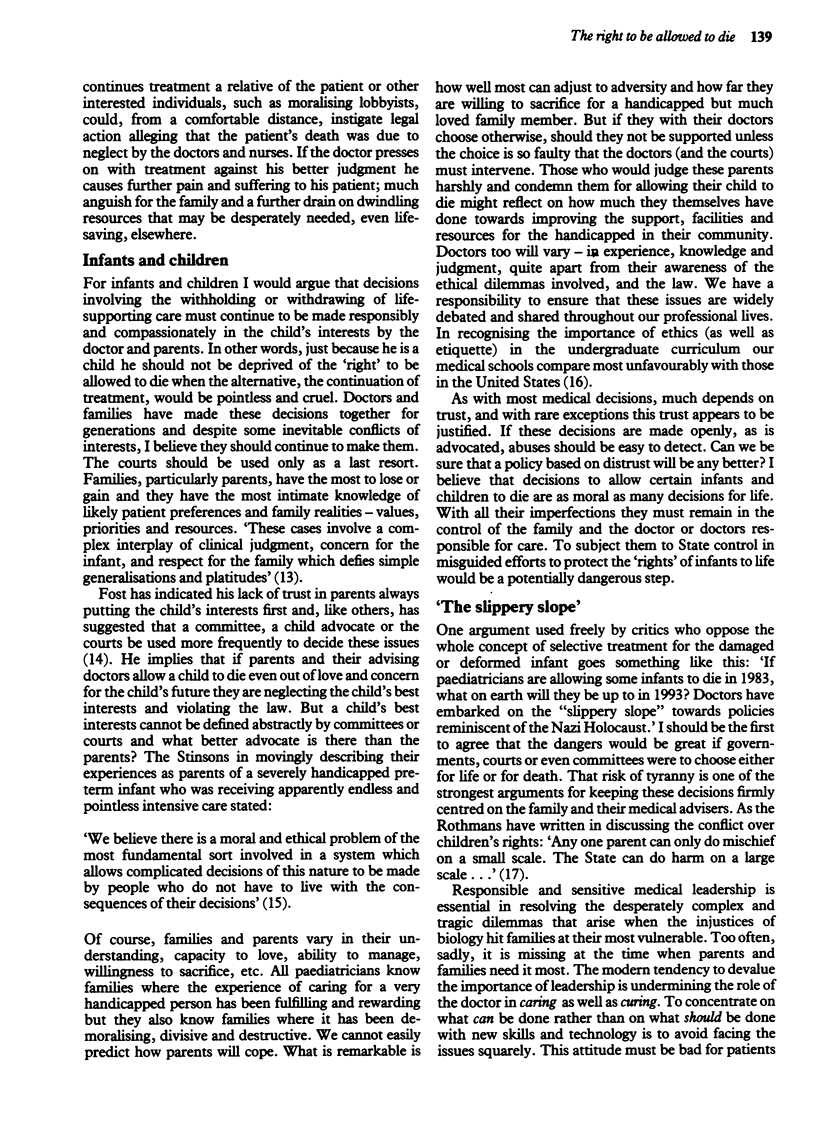
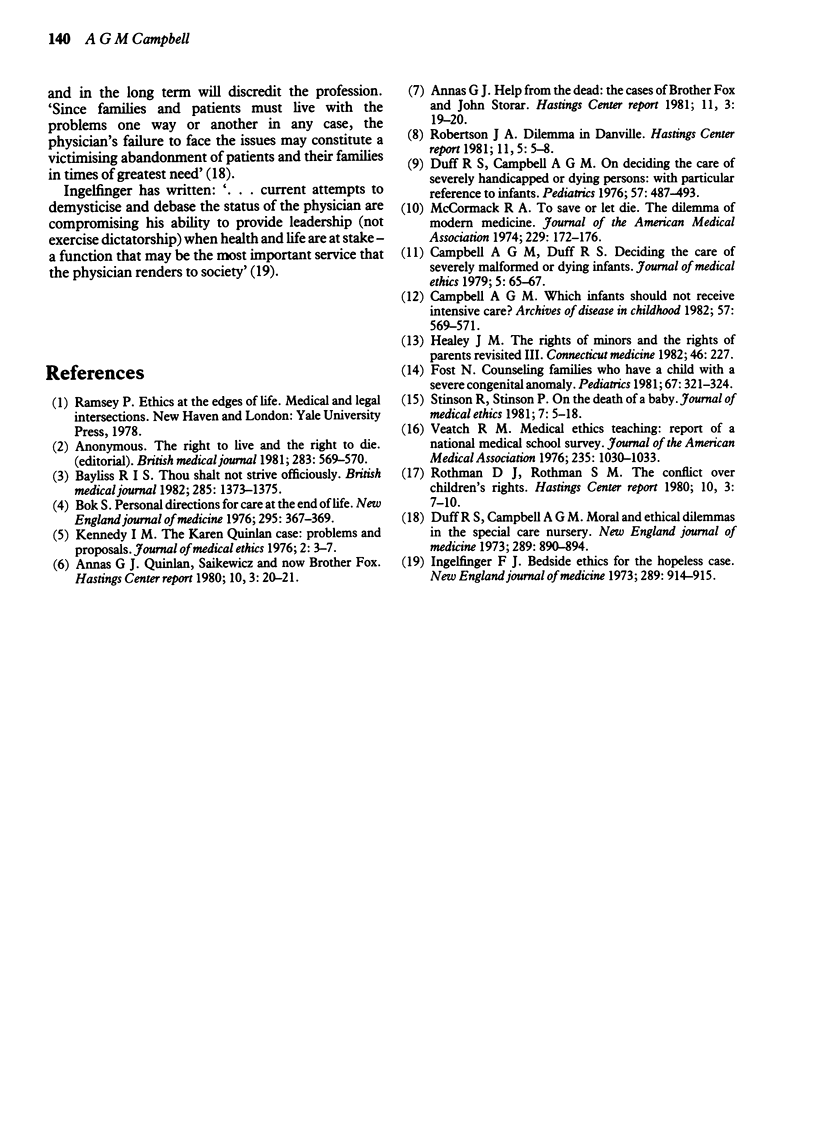
Selected References
These references are in PubMed. This may not be the complete list of references from this article.
- Annas G. J. Help from the dead: the cases of Brother Fox and John Storar. Hastings Cent Rep. 1981 Jun;11(3):19–20. [PubMed] [Google Scholar]
- Annas G. J. Quinlan, Saikewicz, and now Brother Fox. Hastings Cent Rep. 1980 Jun;10(3):20–21. [PubMed] [Google Scholar]
- Bayliss R. I. Thou shalt not strive officiously. Br Med J (Clin Res Ed) 1982 Nov 13;285(6352):1373–1375. doi: 10.1136/bmj.285.6352.1373. [DOI] [PMC free article] [PubMed] [Google Scholar]
- Bok S. Personal directions for care at the end of life. N Engl J Med. 1976 Aug 12;295(7):367–369. doi: 10.1056/NEJM197608122950706. [DOI] [PubMed] [Google Scholar]
- Campbell A. G. Deciding the care of severely malformed or dying infants. J Med Ethics. 1979 Jun;5(2):65–67. doi: 10.1136/jme.5.2.65. [DOI] [PMC free article] [PubMed] [Google Scholar]
- Campbell A. G. Which infants should not receive intensive care? Arch Dis Child. 1982 Aug;57(8):569–571. doi: 10.1136/adc.57.8.569. [DOI] [PMC free article] [PubMed] [Google Scholar]
- Duff R. S., Campbell A. G. Moral and ethical dilemmas in the special-care nursery. N Engl J Med. 1973 Oct 25;289(17):890–894. doi: 10.1056/NEJM197310252891705. [DOI] [PubMed] [Google Scholar]
- Duff R. S., Campbell A. G. On deciding the care of severely handicapped or dying persons: with particular reference to infants. Pediatrics. 1976 Apr;57(4):487–493. [PubMed] [Google Scholar]
- Fost N. Counseling families who have a child with a severe congenital anomaly. Pediatrics. 1981 Mar;67(3):321–324. [PubMed] [Google Scholar]
- Healey Joseph M. The rights of minors and the rights of parents revisited, III. Conn Med. 1982 Apr;46(4):227–227. [PubMed] [Google Scholar]
- Ingelfinger F. J. Bedside ethics for the hopeless case. N Engl J Med. 1973 Oct 25;289(17):914–915. doi: 10.1056/NEJM197310252891712. [DOI] [PubMed] [Google Scholar]
- McCormick R. A. To save or let die. The dilemma of modern medicine. JAMA. 1974 Jul 8;229(2):172–176. [PubMed] [Google Scholar]
- Rothman D. J., Rothman S. M. The conflict over children's rights. Hastings Cent Rep. 1980 Jun;10(3):7–10. [PubMed] [Google Scholar]
- Stinson R., Stinson P. On the death of a baby. J Med Ethics. 1981 Mar;7(1):5–18. doi: 10.1136/jme.7.1.5. [DOI] [PMC free article] [PubMed] [Google Scholar]
- Veatch R. M., Sollitto S. Medical ethics teaching. Report of a National Medical School Survey. JAMA. 1976 Mar 8;235(10):1030–1033. doi: 10.1001/jama.235.10.1030. [DOI] [PubMed] [Google Scholar]


